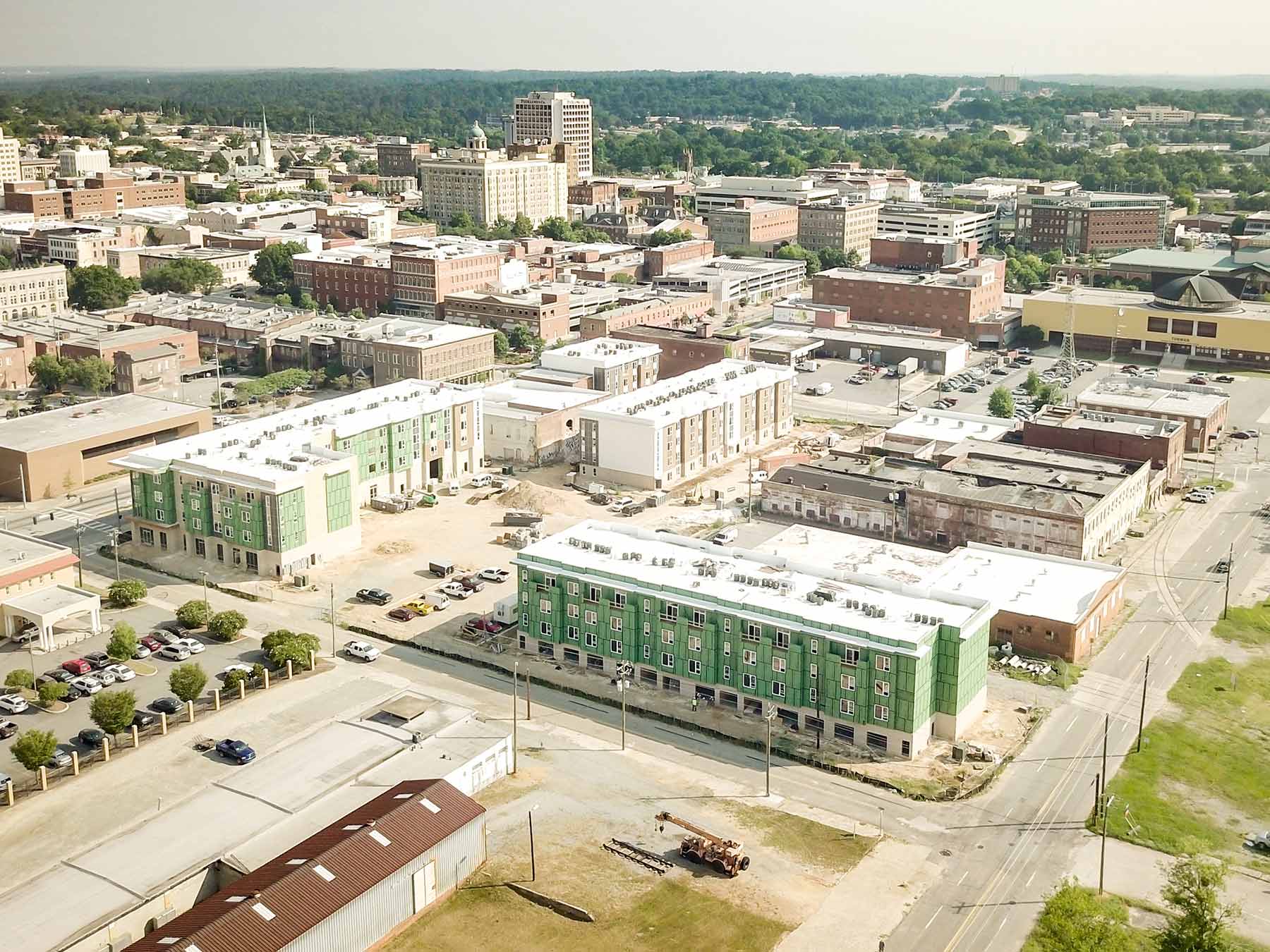A $50,000 grant from the John S. and James L. Knight Foundation is funding development of an interpretive plan for downtown Macon’s historic Capricorn Recording Studios. The facility, cited by some music historians as the birthplace of Southern Rock, is being restored and repurposed by Mercer University as Mercer Music at Capricorn.
As announced last October, Mercer Music at Capricorn will reactivate an historically important facility, not as a museum, but as a tool to advance a vibrant music scene in downtown Macon. The vision is to leverage Macon’s rich, and nationally important, music heritage to shape Macon’s music future.
Mercer Music at Capricorn will have a music incubator for aspiring young musicians, featuring 13 rehearsal spaces; restored and expanded analog and digital recording studios; offices and conference rooms for arts-related non-profits such as Macon Film Festival, Bragg Jam and Macon Pops; space for small concerts, special events, and educational programs through Mercer’s Townsend School of Music; and a two-story interpretive area that will tell the story of Capricorn and Macon’s music heritage through historic artifacts, static exhibits and interactive digital kiosks featuring music, video and text. The digital component will include a robust website to enable people who cannot travel to Macon to experience the story of Macon’s music heritage and the impact it had on American culture. Plans also include a community-sourced musical archive that will collect stories from the public by allowing users to upload their own photos, videos and stories.
“We are grateful to Knight Foundation for its investment in this interpretive plan, which will lay the groundwork for exhibits and digital resources that will help tell the story of Capricorn and its impact on Macon and American culture,” said Mercer President William D. Underwood. “This component of Mercer Music at Capricorn will complement Macon’s existing cultural tourism assets such as the Allman Brothers Band Museum at the Big House and the Tubman Museum, which draw visitors from around the world.”
The University has retained Macon-based archivist and curator Jared Wright to develop the interpretive plan. Wright has previously worked as an archivist for the Otis Redding Foundation, the Allman Brothers Band Museum at the Big House, and the Atlanta History Center, and as a curator at the Georgia Music Hall of Fame. He also is co-founder of Macon-based Field Note Stenographers, a group of musicians, promoters, business owners and live music fans interested in how live musical experiences can benefit the community. Wright has an undergraduate degree in history from Mercer and earned his M.A. in history from the University of West Georgia with specialties in public history and museum studies.
“Knight Foundation is committed to Macon and, in particular, implementation of the Macon Action Plan (MAP),” said Knight Foundation Macon Program Director Lynn Murphey. “Mercer Music at Capricorn is perfectly situated in the heart of Macon’s urban core and provides a unique opportunity to celebrate the music of Macon’s past while discovering the sounds of its future. Knight is pleased to support Mercer’s work on this important community initiative.”
The Peyton Anderson Foundation provided $1 million in funding to purchase and stabilize Capricorn Studios several years ago after the Georgia Trust for Historic Preservation placed the building on its “Ten Most Endangered Structures” list. Sierra Development, which is building the $30 million mixed-use Lofts at Capricorn project in the same block, purchased the building and donated it to the University last year, along with a cash gift of $350,000. Mercer is currently pursuing historic tax credits and private gifts for the restoration, which is projected to cost more than $3 million.
Phil Walden began booking bands and artists such as Otis Redding while he was a Mercer student in the late 1950s and early 1960s. That ultimately led Walden and his partners to launch Capricorn Records. He and Redding purchased a building on Broadway (now Martin Luther King Jr. Boulevard) in 1967 with plans to launch a recording studio, but Redding died months later in a plane crash. The studio ultimately opened in 1969, recording artists such as the Allman Brothers Band, Wet Willie, Elvin Bishop, Charlie Daniels and the Marshall Tucker Band, weaving their stories into Macon’s rich music history.



